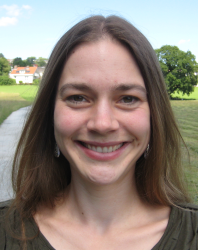|
TOWARD A SCIENCE OF CONSCIOUSNESS
The Tucson Conference 2014 - 20th Anniversary
APRIl 21-26, 2014 Tucson - University Park Marriott
under the direction of the Center for CONSCIOUSNESS STUDIES, University of Arizona
2014 Pre-Conference
Workshop
First-Person Methods: Philosophers' Dreams or Researchers' Nightmares?
Perspectives from Philosophy and the Study of Dreaming
Presenters:
Jennifer M. Windt, PhD / Sascha Benjamin Fink, MA PhD Candidate
Date: Monday afternoon, April 21, 2014
Session: 2:00-6:00 pm
Room: tba
 
Sascha Benjamin Fink
, MA PhD Candidate Jennifer Michelle Windt, PhD
Institute of Cognitive Science, Theoretical Philosophy Group
Philosophy of Cognition Group Department of Philosophy
University of Osnabrück Johannes Gutenberg-University of Mainz, Germany
Program Description:
The best way to learn about the specific character of conscious experience is to study
what people say about it. Fundamental features of consciousness (e.g. holistic
integration, phenomenal embodiment, specious presence, etc.) were only established as
targets for consciousness research through first-person methods. Most agree that such
methods are indispensable for consciousness studies. At the same time, phenomena
such as change blindness suggest that first-person access to phenomenality is not
perfect. First-person reports can be confabulatory, contradictory, or incomplete. This calls
the validity of first-person approaches into question. Apparently, we need first-person
reports – but how far can we trust them?
Dreams illustrate the problem of first-person reports in a compelling manner. Because
dreams are largely decoupled from sensory input and behavioral output, dream
researchers rely almost exclusively on dream reports. At the same time, dream
reports have often been taken to be particularly unreliable, occasionally leading to
outright skepticism regarding the experiential character of dreaming. Despite these
theoretical disagreements, however, dream research is a thriving field and can provide a
fresh perspective on problems surrounding first-person reports.
The tutorial has four goals: (1) Provide an introduction to the basic problems raised by
first-person reports using the example of dreaming, (2) suggest specific consequences
from the philosophical debate on dreaming for the use of first-person reports in
consciousness research, (3) discuss philosophical positions on the validity of first-person
reports, the conceptual variety of introspective privileges, and the reliability of
introspection, and (4) see how a signal detection perspective can shed light on the usage
of introspective reports in empirical studies.
We intend to illustrate these issues with examples from dream research and by
experimenting with the feelSpace belt, a sensory augmentation device that provides a
sense of direction akin to that of pigeons (http://feelspace.cogsci.uni-osnabrueck.de/).
Outline:
1.) Dreaming and dream reports: Lessons for the scientific study of consciousness
(Jennifer M. Windt) [60 min including discussion]
2.) Short experimental session [30 min]: The phenomenology of navigating and its
alteration by sensory augmentation with the feelSpace belt.
Break: approx. 15 min
3.) Introspection from a signal detection point of view: Varieties of privileged access,
reliability, and strategies for improvement (Sascha Benjamin Fink) [60 min including
discussion]
Break: approx. 15 min
4.) Open discussion: What role does philosophers’ and researchers’ own experience
play? What role should it play? Can a researcher know better what is happening in
consciousness than the experiencer herself? [60 min]
Intended Audience:
Philosophers and empirical researchers interested in first-person reports and in the
intersection between philosophy of mind, epistemology, and empirical research.
References:
• Gallagher, S. (2003). Phenomenology and Experimental Design, Journal of
Consciousness Studies, 10 (9-10), 85-99.
• Hurlburt, R. T., & Schwitzgebel, E. (2007). Describing Inner Experience? Proponent
Meets Skeptic. Cambridge, MA & London: MIT Press.
• Schwitzgebel, E. (2011). Perplexities of Consciousness, MIT Press.
• Lyons, W. E. (1986). The Disappearance of Introspection. Cambridge, MA: MIT
Press.
• Windt, J. M., & Metzinger, T. (2007). The philosophy of dreaming and selfconsciousness:
What happens to the experiential subject during the dream state?
In D. Barrett & P. McNamara (Eds.), The New Science of Dreaming. Volume 3:
Cultural and Theoretical Perspectives (pp. 193-248). Westport & London: Praeger
Perspectives.
• Windt, J. M. (in press) Reporting dream experience: Why (not) to be: skeptical
about dream reports. Frontiers in Human Neuroscience.
Professional CVs
J.M. Windt
S.B. Fink
|

